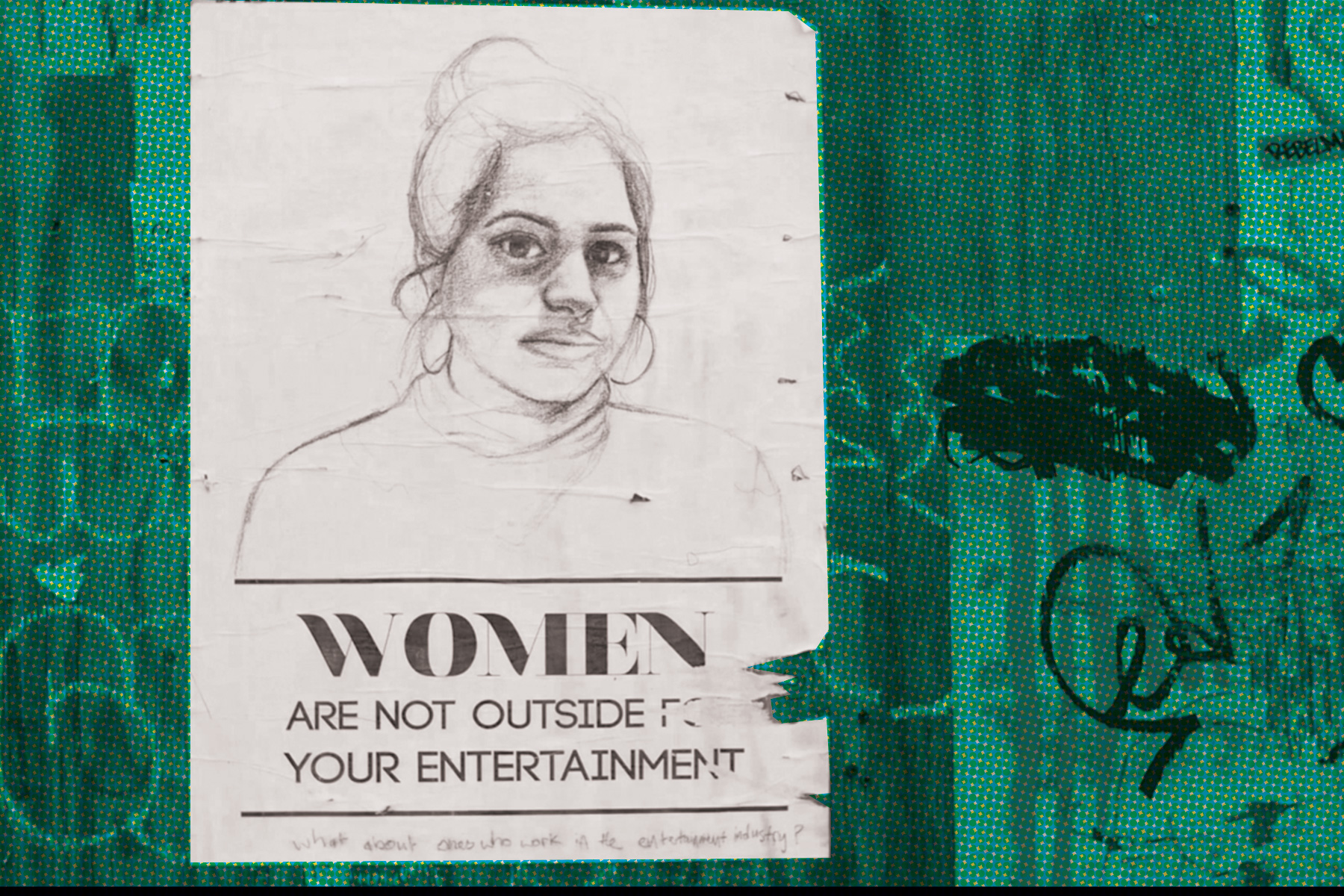The street harassment epidemic knows no bounds.
by Aysha Khan
Should I wear this dress today? Am I asking for it? Do I hold my head up confidently and risk making eye contact, or keep my eyes on the ground and risk not seeing him coming?
For women walking the streets of the world, it seems there’s at least one universal fear: sexual harassment. Catcalls will follow you from London to Hong Kong to Nairobi, from the metro out onto the street, at a market and up the stairs to your apartment.
As these five short film projects show, women share surprisingly similar experiences in every corner of the globe.
“Dekh Le” (Look)
Directed by Ketan Rana
Mumbai, December 2013
In India, Mumbai is called the safest city for women. But “eve-teasing” — the term they use to refer to catcalling and street harassment — still runs rampant. Some women carry needles and safety pins to protect themselves; others throw chili powder into their harassers’ eyes.
One year after the fatal gang rape of a woman on a bus in India, Whistling Woods International film school held a mirror up to harassers through a powerful PSA video.
As a group of men ogle a female motorcyclist’s legs in one scene, she pulls down her helmet visor. They’re left stunned instead by a reflection of the hungry, desperate look on their own faces.
Accompanied by the lyrics, “Look at how you look when you’re looking at me,” in Hindi, the video aims to show men just how pathetic they look while leering at women they see in the street, at a cafe, or on the bus.
“10 Hours of Walking in NYC as a Woman”
Produced by Rob Bliss Creative
New York City, October 2014
Remember this? The 10 hours of harassment — more than 100 instances of catcalling, whistling and even stalking — actress Shoshana Roberts received on camera have been viewed more than 40.8 million times.
The video, commissioned by anti-street harassment organization Hollaback!, has spawned a host of questions since hitting the web. Was Roberts secure from the countless rape threats she faced after the video went viral? What if the actress had been clad in something more modest – like a hijab? What about the experiences of women of color walking on the street? And wait a second – did the director really cut out the white harassers?
If you are looking for a more diverse portrayal of street harassment in the Big Apple, The Daily Show’s Jessica Williams has more.
“Creepers on the Bridge”
Co-directed by Tinne Van Loon and Colette Ghunim
Cairo, September 2014
Using a hidden iPhone camera, Ghunim recorded herself walking across Cairo’s busiest bridge as a preview of her upcoming documentary, “The People’s Girls,” expected to be in post-production until September. Between the fiery music — an Arabic song that translates to “Flirting, yes; harassment, no” — and the leering looks of men, it’s hard to forget this video.
A shocking 99 percent of women in Egypt reported having been sexually harassed in 2013, according to U.N. statistics. More than 96 percent of these women said they have been physically assaulted. Egypt criminalized sexual harassment for the first time in 2014, but many are skeptical that the initiatives have been effective.
Hidden camera videos of street harassment aren’t uncommon in Egypt. When one Cairo woman replicated Hollaback!’s New York City video, she claimed to have received more than a hundred catcalls and acts of street harassment in approximately four hours.
“Sílbale a tu madre” (Whistling at Your Mom)
Created by Everlast Peru and Paremos El Acoso Callejero
Lima, November 2014
You’re standing outside a bar with a buddy when you see a beautiful woman walking by in a black dress and heels. “Tasty panties,” you holler, laughing and elbowing your friend. She turns around —and it’s your mother, pulling off a wig.
“Don’t wait until we make you harass your own mother before you start respecting women,” Natalia Málaga, coach of Peru’s female volleyball team, warns viewers. In Peru’s capital city, Lima, more than 88 percent of women reported experiencing street harassment, according to a 2013 study by NGO Manuela Ramos.
This fake documentary-slash-PSA was released in Spanish by sporting good company Everlast soon after the Hollaback! New York City video blew up, becoming Peru’s most successful viral campaign. Subtitled versions in English, French, Japanese and Korean went viral months later.
While the video was criticized for framing respect for women through their relationship to men, it lit a fire under activism in Peru. In March, weeks after the video went viral again, the government criminalized catcalling in public spaces, with a penalty of up to 12 years in prison.
“All the Time. Every Day.”
Produced by Fusion
Mexico City, February 2015
Since 2012, Tatyana Fazlalizadeh has been posting sketches of women’s faces — strong, unsmiling — in public spaces across America. “Critiques on my body are not welcome,” one reads. “My name is not baby,” another declares. She interviews women about their experiences with street harassment, then sketches and designs a powerful poster to display locally.
Through a collaboration with media site Fusion, the Brooklyn-based artist and activist behind “Stop Telling Women To Smile” took her project outside the U.S. this year for the first time. With this series of video shorts, 76 locals (including four men) — students, police, mothers and locals — discuss their experiences with public harassment.
According to a 2010 U.N. report, about 44 percent of females in Mexico have experienced sexual violence at least once in their lives. Mexico City has responded with gender segregation — female-only subway cars and pink busses — to provide a respite. But local gender activists say it’s not enough, and Fazlalizadeh is working to plaster their message onto the streets.
Aysha Khan studies multi-platform journalism and Middle Eastern affairs at the University of Maryland. Find her on Twitter @ayshabkhan or at her website.




